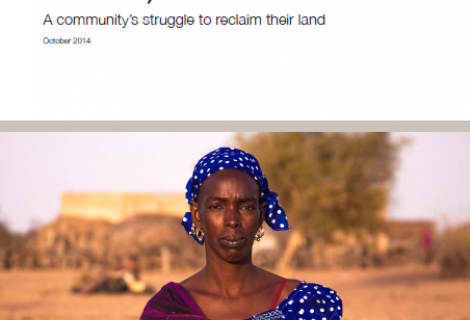
Over the past four years, Senegalese and Italian investors (first Senethanol and then Senhuile, a joint venture
majority owned by the Tampieri Financial Group of Italy) have been seeking to produce sweet potatoes and
then sunflowers in the north-western region of Saint-Louis in Senegal. During this period, these investors
have enjoyed support from the Senegalese government and from influential local and national elites. But to
this day, Senhuile-Senethanol has disregarded the concerns of local communities in relation to the investment.
These communities, anticipating disastrous impacts on their livelihoods, have constantly requested the organisation of proper consultations through which they would have access to clear information about the project and the option to refuse the project or to set conditions for its implementation. The disregard of local communities has twice led to clashes between disheartened local communities, supporters of the project and police forces, which caused the deaths of two people in October 2011 in Fanaye, where the investment was initially planned. As a result, the then Senegalese President Abdoulaye Wade relocated the project to Ndiael, about 100 km west of Fanaye. This project was to be implemented by a recently established company called Senhuile, a joint venture between Senethanol and Tampieri.
Far from learning from the tragic events in Fanaye, Senhuile has continued to implement the project, benefiting from the lack of protection of local communities’ customary land tenure rights, failing to carry out adequate consultations, ignoring its legal obligation under Senegalese law to conduct an in-depth Environmental and Social Impact Study (EIES) before starting any activity in Ndiael, violating the right to water, food and the environment, and disregarding the requirement for free, prior and informed consent. The investment is therefore a clear case of a land grab. ActionAid, along with a wide range of civil society organisations, has been supporting the claims of local communities in Ndiael throughout this process and is calling on the company to stop the project and conduct a proper consultation with communities.6 This call was supported by 105,000 citizens worldwide who sent urgent appeals to the Tampieri Financial Group, the majority shareholder in Senhuile. Tampieri met representatives of ActionAid Italy in June 2014 and claimed it would go on with its project and conduct proper consultations with all affected communities. In early September 2014, Senhuile contacted a representative of the Collective for the protection of Ndiael lands to propose a meeting, which is a welcome move, but up to now no such meeting has taken place and nothing has changed for the affected communities.
Senegalese authorities have failed to protect and respect the rights of local communities and – where Senegalese law is weak – Senhuile has failed to go above and beyond and meet its obligations under human rights law, in particular the requirement to avoid the negative human rights impacts of its operations and to ensure proper and transparent consultation with communities. This report provides an analysis of the company’s investment in Fanaye and Ndiael over the past four years, stressing serious shortcomings in the consultation process; the persistent lack of transparency about key issues such as the exact areas where land will be cultivated; the threats to the region’s fragile environment; the unbalanced impact that land grabs like this have on women; and the adverse impact on the lives and the food security of local people. It ends with recommendations for both the government and the company.
Read the full report No land, no future: a community's struggle to reclaim their land and act now to demand that Italian company Senhuile-Sénéthanol stops all their operations in the Ndiael reserve.